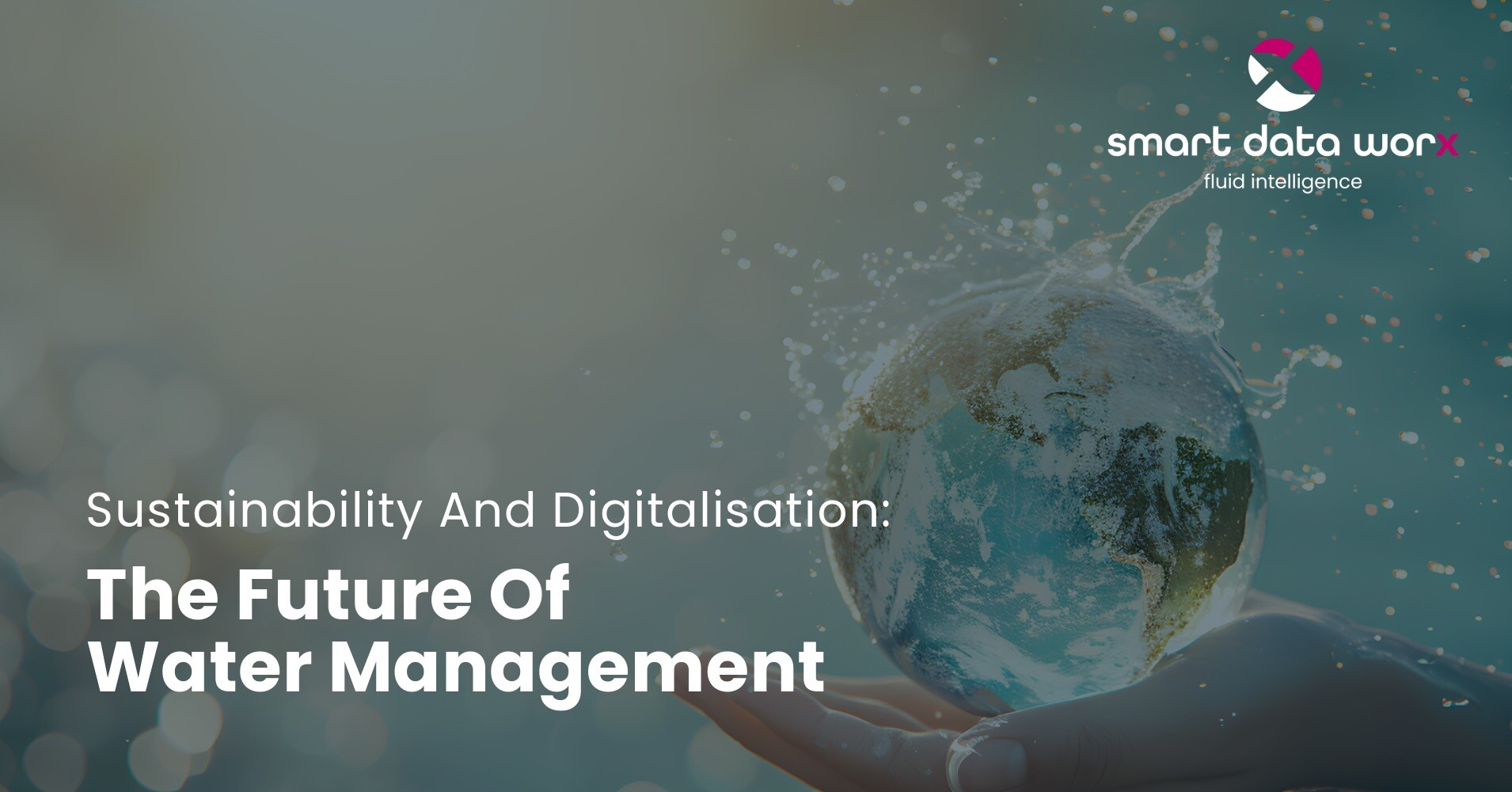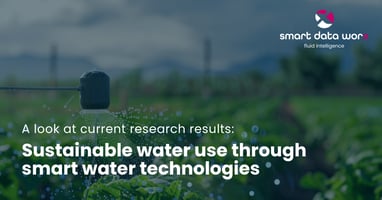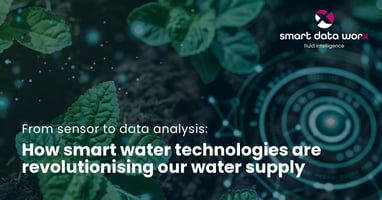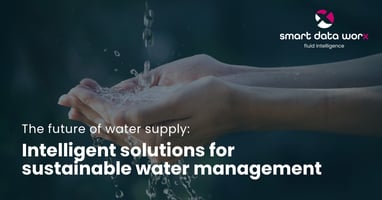The sustainable use of water resources has become a key challenge in view of global environmental...
Sustainability and digitalisation: the future of water management

The water industry is at a turning point: sustainability and digitalisation are evolving from optional aspects to key drivers of the industry. With the introduction of the Corporate Sustainability Reporting Directive (CSRD) and the European Sustainability Reporting Standards (ESRS), reporting on environmental, social and governance (ESG) issues is becoming mandatory. Companies can no longer regard sustainability reports merely as marketing tools, but must provide precise and verifiable data.
The CSRD is a response to increasing pressure from governments and society for companies to report more transparently on their sustainability performance. These new requirements demand not only detailed documentation of energy consumption and CO₂ emissions, but also a transparent presentation of the social and governance-related impacts of corporate activities. The challenge here is that the CSRD requires a precise, comparable and verifiable presentation of data - across different reporting periods.
CSRD: The future of sustainability reporting
The CSRD raises the requirements for sustainability reporting to a whole new level. Companies that fall under the CSRD are obliged to disclose detailed information about their environmental and social impact. They must not only measure the impact of their actions, but also explain how they intend to achieve their sustainability goals. One key difference to the past: sustainability reports are no longer voluntary or purely communication tools, but must be prepared just as precisely as financial reports. This requires comprehensive data collection, processing and presentation - from energy and resource consumption to supply chains and social aspects.
From the flood of data to a clear sustainability strategy
The CSRD and other regulatory requirements lead to an enormous need for structured data. Companies need to be able to efficiently collate information from different processes such as energy management, compliance and supply chain responsibility. This data is key to meeting regulatory standards and producing accurate and verifiable sustainability reports. Digitalisation helps to meet this need.
Challenges in practice
Viele Unternehmen stehen vor der Herausforderung, bestehende Prozesse und Daten aus verschiedenen Bereichen zu integrieren und transparent darzustellen. Beispielsweise haben viele Unternehmen bereits Energiemanagementsysteme oder verfolgen gesetzliche Vorgaben wie das Lieferkettensorgfaltspflichtengesetz. Doch diese Informationen liegen oft in separaten Systemen vor, was den Zugriff und die Verknüpfung erschwert. Darüber hinaus sind Unternehmen mit der Herausforderung konfrontiert, ihre Daten so aufzubereiten, dass sie sowohl den rechtlichen Anforderungen entsprechen als auch für die interne Analyse und strategische Entscheidungsfindung von Nutzen sind.
Solutions through digitalisation
Digitalisation offers the opportunity to master these challenges efficiently. smart data worx focuses on innovative, data-driven solutions that support companies in the water industry in meeting the increasing requirements:- Centralised data platforms: smart data worx develops tools that can consolidate data from different sources on a single platform. This gives companies a holistic overview and makes it easier for them to fulfil the complex requirements of the CSRD.
- Automated analyses: Intelligent algorithms help to quickly analyse complex data sets. This allows trends and optimisation potential to be identified without the need for manual intervention.
- Process-oriented access: Systems that support and seamlessly integrate existing processes help to optimise the use of existing data and create synergies.
© splunk
Sustainability and digitalisation: two sides of the same coin
Digitalisation is not just a tool for achieving sustainability goals, but is itself part of the transformation. Efficient and sustainable digital solutions play a key role in the water industry:
- Resource efficiency through smart technologies: real-time monitoring and data-based analyses help to minimise water losses, reduce energy consumption and optimise the use of materials. These technologies are crucial to meeting the increasing demands for resource conservation and climate neutrality.
- Sustainable digitalisation: Digital infrastructures must also be designed sustainably. This includes the integration of energy-efficient systems, the optimised operation of data centres and the use of renewable energies to make the digital solutions themselves more environmentally friendly.
The importance of existing processes and data
A key step towards sustainability is the effective utilisation of existing processes and data. Companies that can fall back on established systems such as energy management or compliance often have a decisive advantage. The challenge is to make this information accessible, transparent and compatible.
Digitisation offers the following advantages here:
- Efficient utilisation of existing data: Automated data processing and intelligent interfaces allow information from different areas such as supply chains, energy consumption and environmental performance to be linked and analysed.
- Transparency and traceability: A centralised database ensures that all relevant information is easily accessible and documented in accordance with the law.
- Optimised decision-making processes: Companies can make well-founded decisions based on reliable data and implement strategies in a targeted manner.
- Smooth migration: The integration of existing systems and data into digital platforms requires clear planning to ensure compatibility and gradually modernise processes without disrupting ongoing operations.
Together into the future: smart data worx as a partner for transformation
The increasing demands for sustainability and digitalisation not only present companies with challenges, but also opportunities. With a clear focus on data-driven innovation, smart data worx offers the tools to effectively shape this transformation.
Our vision: technologies that not only help to fulfil complex reporting requirements, but also sustainably improve the efficiency and sustainability of the water industry. By combining experience, innovation and a deep understanding of the industry, we support companies in future-proofing their processes.


